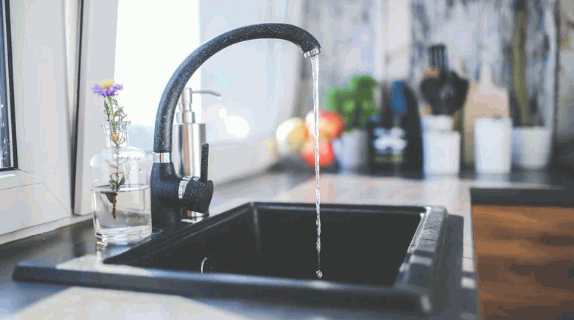
Do you find yourself dealing with clogged drains more often than you'd like?
Understanding what drain cleaning is, why it's important, and how to make your own DIY drain cleaner can save you time and money.
We will explore the causes of clogged drains, the benefits and risks of using a DIY drain cleaner, and provide tips for preventing future clogs.
Discover how you can easily keep your drains running smoothly and efficiently.
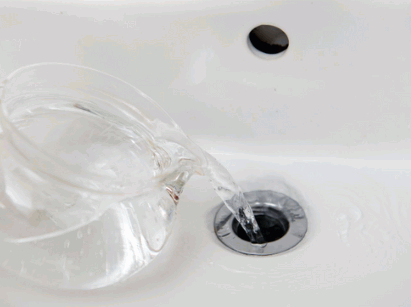
Table of Contents
Drain cleaning involves the removal of blockages and buildup in plumbing systems to ensure proper water flow and prevent blockages. It is an essential maintenance task to keep your drains functioning efficiently.
Regular drain cleaning not only helps maintain the overall health of your plumbing system but also prevents unpleasant odours and potential water damage in your home. There are various methods used for cleaning drains, including chemical cleaners, drain snakes, and hydrojetting. Chemical cleaners are effective for breaking down organic matter, while drain snakes can physically remove blockages. Hydrojetting, on the other hand, uses high-pressure water to flush out stubborn debris.

Cleaning your drains regularly is crucial to prevent blockages, maintain proper water flow, and avoid potential plumbing issues. Neglecting drain cleaning can lead to blockages, foul odours, and even more severe problems within your plumbing system.
Blockages in drains not only cause inconvenience but can also result in costly damage to your property. The accumulation of debris, grease, and other substances within your pipes can create a breeding ground for bacteria and mould, posing health risks to you and your family. Neglected drain cleaning can put excess pressure on your plumbing system, leading to leaks, burst pipes, and water damage. It's essential to prioritise drain maintenance to ensure the longevity and efficiency of your plumbing infrastructure.
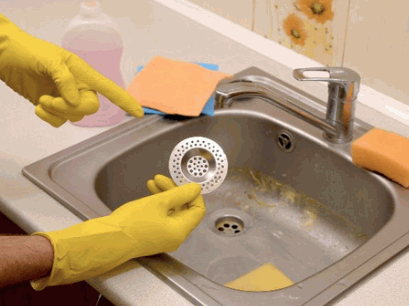
Blocked drains can be caused by various factors, including the build-up of grease, fats, oils, and food particles (FOG clogs). Hair, soap scum, and mineral deposits can contribute to drain blockages, leading to slow drainage or complete blockages.
Grease accumulation from cooking is a common culprit in kitchen sinks, coating pipes over time. When oils and fats solidify, they create a sticky residue, attracting other debris and forming blockages. FOG clogs worsen when combined with food scraps, causing a sticky mess in drains.
Hair strands easily clump together with soap scum in bathroom drains, impeding water flow. The sticky nature of soap residue contributes to the build-up along with mineral deposits from hard water, leading to stubborn blockages.
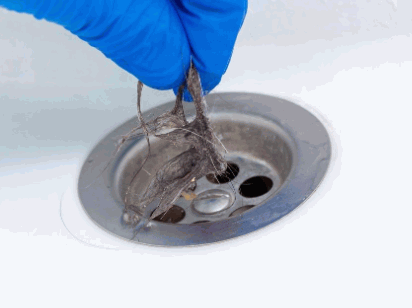
Creating your DIY drain cleaning solution can be a cost-effective and eco-friendly alternative to commercial drain cleaners. By using simple household ingredients like vinegar, bicarbonate of soda, and salt, you can effectively clean your drains without harsh chemicals.
Making your own drain cleaner not only helps you save money but also contributes to a healthier environment by reducing the use of harmful substances. The combination of vinegar and bicarbonate of soda creates a chemical reaction that helps break down clogs and removes buildup without causing any damage to your pipes. Additionally, eco-friendly alternatives are safer for your family and pets, as they do not contain toxic ingredients commonly found in commercial products.
Find out more: How To Clean A Drain DIY
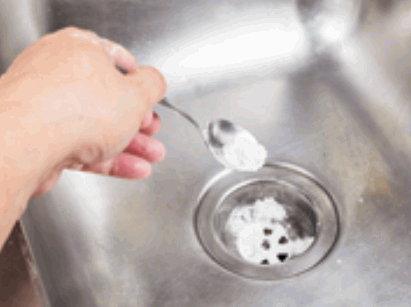
To create a DIY drain cleaner, you will need common household ingredients such as boiling water, salt, dish soap, Borax, and cream of tartar. These items can help break down blockages and keep your drains clean and odor-free.
The properties of these ingredients play a crucial role in clearing blockages effectively. Boiling water helps to flush out debris and grease buildup, while salt acts as an abrasive to scrub away residues. Dish soap's surfactant properties aid in cutting through grease, making it easier to remove obstructions.
Borax, a natural mineral compound, lends its cleaning power to break down organic matter and disinfect pipes, preventing future blockages. Cream of tartar, with its acidic nature, helps dissolve mineral deposits and grease, enhancing the overall cleaning efficiency of the solution.
The process of making a DIY drain cleaner involves simple steps like combining the ingredients, pouring the mixture down the drain, allowing it to sit, and flushing it with hot water. This natural solution can be as effective as commercial drain cleaners without the harsh chemicals.
One key benefit of creating your own drain cleaner is that it is eco-friendly and cost-effective. By using common household items like bicarbonate of soda, vinegar, and hot water, you can easily tackle minor blockages and keep your drains running smoothly.
To start, mix half a cup of bicarbonate of soda with half a cup of vinegar to create a foaming action that helps break down debris. After pouring this mixture down the drain, let it sit for about 30 minutes to allow it to work its magic.
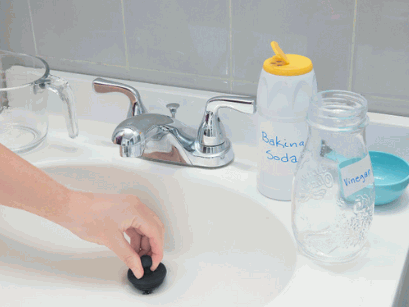
Using a DIY drain cleaner offers several benefits, including being cost-effective, environmentally friendly, and safe for your plumbing system. These homemade solutions can effectively unclog drains without causing damage to pipes or the environment.
One of the major advantages of opting for a DIY drain cleaner is the significant cost savings it provides. By using common household ingredients like bicarbonate of soda, vinegar, or lemon juice, you can avoid expensive store-bought chemical cleaners. These natural remedies are eco-friendly, reducing the harmful impact of harsh chemicals on the environment.
DIY drain cleaners are gentle on your pipes, unlike commercial products that can erode and corrode the plumbing system over time. With ingredients that are safe yet powerful, you can efficiently tackle clogs without worrying about damage to your pipes.
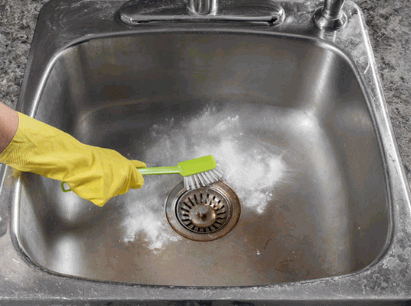
While DIY drain cleaners work well for regular maintenance and minor clogs, they may not be effective for tough or severe blockages
In such cases, professional plumbers may be required to address the issue and prevent further plumbing problems.
Diving deeper into the limitations of DIY drain cleaners, it's essential to understand that these off-the-shelf products are generally designed for surface-level issues and may not penetrate deep enough to tackle stubborn blockages caused by grease buildup, tree roots, or mineral deposits. The chemical ingredients in some drain cleaners can be harmful to pipes, especially in older plumbing systems.
When facing more intricate plumbing challenges, such as sewer line obstructions or damaged pipes, a trained plumber equipped with specialised tools and expertise becomes essential. Leverage their knowledge to accurately diagnose the problem and implement effective solutions to restore proper drainage and prevent recurring issues. By engaging professionals, homeowners can ensure long-term durability and efficiency in their plumbing systems.
Improper use of drain cleaners, whether DIY or commercial, can pose risks to your health, plumbing system, and the environment. Harsh chemicals in some cleaners may cause damage to pipes or worsen existing plumbing issues if not used correctly.
It's crucial to follow manufacturer instructions meticulously when using drain cleaners to prevent potential dangers. Mixing different types of cleaners or using excessive amounts can lead to chemical reactions releasing toxic fumes that are harmful when inhaled. These chemicals can corrode pipes and fixtures, leading to costly repairs and environmental contamination. Ensuring proper ventilation and wearing protective gear, such as gloves and goggles, is imperative to minimise health risks when handling these products.
Regular maintenance with DIY drain cleaners can help prevent blockages and maintain the efficiency of your plumbing system. Depending on usage and the presence of potential blockage-inducing substances, using a DIY cleaner monthly or bi-monthly can be advantageous.
Consistency is key when it comes to maintaining your drains. By establishing a routine for using DIY drain cleaners, you ensure that small blockages are addressed before they turn into more serious obstructions. Plus scheduled cleanings, it's important to pay attention to any early signs of drainage issues like slow draining sinks or gurgling noises.
Incorporating preventive measures such as using drain screens to catch debris and avoiding pouring fat down the drain can significantly reduce the frequency of blockages. Remember, a little proactive care can go a long way in keeping your plumbing system running smoothly.
To avoid blocked drains, consider using a drain strainer to catch debris, refrain from pouring grease or oil down the drain, and maintain regular cleaning habits to prevent build-up. These simple tips can help in reducing the risk of plumbing issues due to blockages.
Another effective way to prevent blocked drains is by implementing proper disposal methods for food scraps. Instead of rinsing food remnants down the sink, use a compost bin or rubbish bin for disposal. Scheduling routine checks and maintenance for your drains can catch any early signs of blockages or leaks, saving you from potentially costly repairs down the line. Remember that preventive measures, such as using eco-friendly drain cleaners and avoiding chemical-based products, can also contribute to the overall health of your plumbing system.
Installing a drain strainer in your sinks and baths can help prevent debris, hair, and other substances from entering the drain and causing blockages.
By capturing these particles before they have a chance to accumulate, drain strainers ensure that your plumbing system flows smoothly and efficiently. This not only saves you from the hassle of dealing with stubborn blockages but also extends the lifespan of your pipes and fittings. Using a drain strainer is an environmentally friendly practice as it reduces the need for strong chemical drain cleaners that can harm both your pipes and the ecosystem.
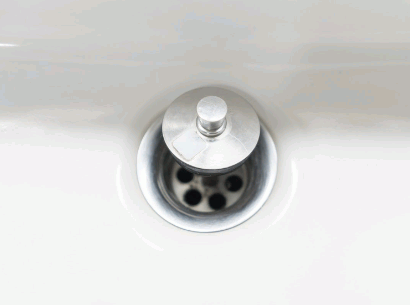
One of the major causes of drain blockages is the improper disposal of grease, fats, and oils down the drain. These substances can solidify and create obstructions in the pipes, leading to slow drainage and potential plumbing issues.
It is crucial for individuals to be mindful of how they handle kitchen grease and cooking oils to prevent FOG (fats, oils, and grease) accumulation. Proper disposal methods include collecting the cooled grease in a container and then discarding it in the bin once solidified. Alternatively, consider recycling used oil at designated drop-off centres or using absorbent materials like coffee grounds or cat litter to soak up excess grease before disposal. By implementing these simple practices, homeowners can help avoid costly repairs and maintain a healthy plumbing system.
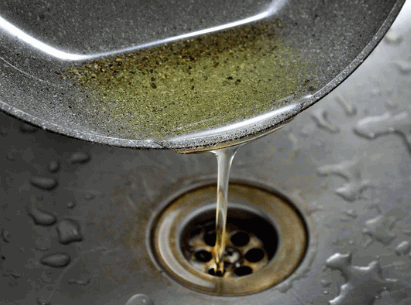
Performing regular drain cleaning using DIY solutions or commercial products can help maintain clear drains and prevent blockages. By incorporating drain maintenance into your household routine, you can reduce the risk of plumbing issues and ensure proper water flow.
Consistent care for your drains not only keeps them clear but also prolongs the lifespan of your plumbing system. Preventive maintenance plays a crucial role in safeguarding your pipes from deterioration caused by buildup over time. Whether it's a weekly flush with hot water or monthly treatments with vinegar and bicarbonate of soda, these simple practices can make a significant difference in the long run. Regularly attending to your drains can save you time, money, and the hassle of dealing with major blockages or leaks.
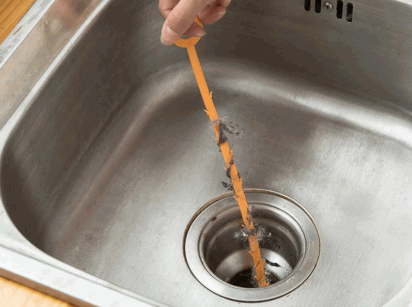
For minor drain blockages, using a plunger can be an effective way to dislodge obstructions and restore proper water flow.
The use of a plunger is a straightforward yet practical approach to dealing with minor plumbing problems before they worsen. To use a plunger effectively, ensure you create a tight seal around the drain opening. Gently push the plunger down, then pull up firmly to create suction. Repeat this action several times until the blockage loosens.
It's important to use the appropriate type of plunger for the task. A cup plunger is suitable for sinks and showers, whereas a flange plunger is most effective for toilets. Keep a plunger readily available in your home for immediate use whenever a drain blockage occurs.
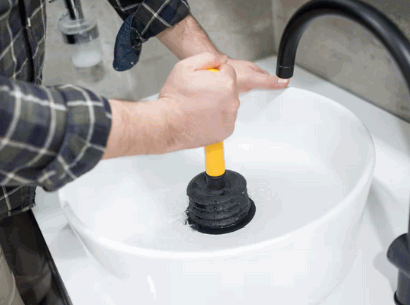
Whilst DIY drain cleaners are generally safe and effective, there are certain risks associated with their use. These include potential harm if not used correctly, ineffectiveness for severe blockages, and the need for professional assistance in complex plumbing issues.
One of the main risks of using DIY drain cleaners is the potential harm that can occur if they are not used correctly. These commercial products contain strong chemicals that can be hazardous if mishandled or if they come into contact with the skin or eyes. It's crucial to follow the instructions carefully, wear protective gear, and ensure proper ventilation when using these cleaners.
Whilst DIY drain cleaners can tackle minor blockages effectively, they may prove ineffective for more stubborn or severe blockages. In such cases, continued use of these products could lead to further complications and potentially damage your pipes, resulting in costly repairs.
Therefore, it's important to recognise the limitations of DIY drain cleaners and know when it's time to seek professional help. Complex plumbing issues, such as tree root intrusions or collapsed pipes, require the expertise of a licensed plumber to assess and address the problem effectively.
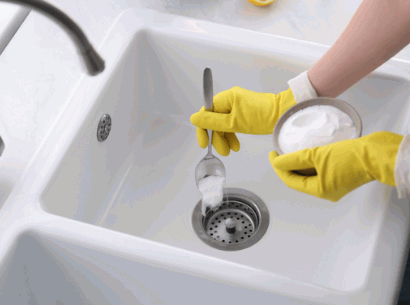
Whilst DIY drain cleaners work well for regular maintenance and minor blockages, they may not be effective for tough or severe blockages. In such cases, professional plumbers may be required to address the issue and prevent further plumbing problems.
DIY drain cleaners usually contain chemicals that can help break down organic matter and minor blockages within the pipes. When facing tough clogs or severe blockages caused by foreign objects or significant build-up, these off-the-shelf solutions might fall short.
Professional plumbers have the expertise and specialised tools to handle complex plumbing issues effectively. They can conduct thorough inspections, identify the root cause of the problem, and provide targeted solutions to ensure long-term plumbing health.
Improper use of drain cleaners, whether DIY or commercial, can pose risks to your health, plumbing system, and the environment. Harsh chemicals in some cleaners may cause damage to pipes or worsen existing plumbing issues if not used correctly.
One common risk of improper drain cleaner usage is the potential harm to your health, with accidental exposure leading to skin irritation or eye damage. Following instructions diligently is crucial to prevent mishaps. It's also important to pay attention to the safety precautions provided on the product labels, as inhaling noxious fumes or skin contact with corrosive substances can have serious consequences.
Misuse of drain cleaners can harm the environment by contaminating water sources with toxic chemicals. Residues from these cleaners that end up in waterways can pose risks to aquatic life and overall ecosystem health.